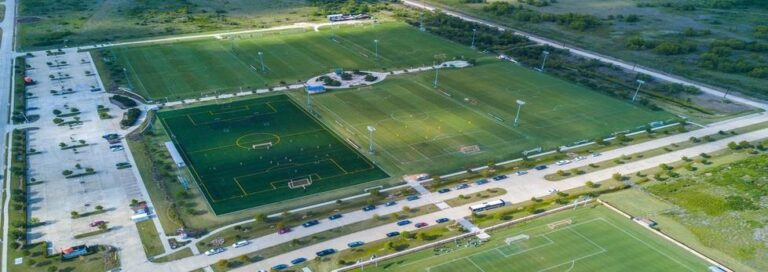Revitalizing Houston’s Sports Venues: A Strategic Vision for the Future
Addressing the Aging Sports Infrastructure in Houston
Houston’s dynamic sports scene is currently challenged by the gradual decline of its once state-of-the-art facilities. Many stadiums and arenas, which were once celebrated for their modernity, now face escalating maintenance expenses and shifting expectations from fans who demand more immersive and comfortable experiences. City officials and sports executives are navigating the delicate balance between prudent financial management and the urgent necessity to upgrade these venues to maintain Houston’s status as a premier destination for major sporting events.
To tackle these challenges, several innovative strategies are under consideration:
- Collaborative funding models that combine public resources with private investment to minimize taxpayer burden
- Adaptive renovation techniques that honor the historical significance of venues while improving safety and fan amenities
- Inclusive community outreach programs designed to foster transparency and build widespread support for redevelopment plans
| Venue | Opening Year | Projected Renovation Cost | Current Status |
|---|---|---|---|
| Toyota Center | 2003 | $150 million | Planning Stage |
| Minute Maid Park | 2000 | $120 million | Under Evaluation |
| TDECU Stadium | 2014 | $80 million | Postponed |
Preserving Heritage While Embracing Modernization
Houston’s sports administrators face the intricate task of respecting the city’s rich athletic legacy while adapting to the rapidly evolving demands of today’s spectators and stakeholders. Renovation projects must strike a balance between maintaining cherished historic features and integrating state-of-the-art technologies and conveniences. This approach not only honors loyal fans but also attracts a new generation seeking enhanced comfort and interactive experiences. Success hinges on close collaboration among architects, preservation experts, and business leaders to ensure these venues remain vibrant community landmarks for decades ahead.
Key focus areas for modernization include:
- Advanced connectivity: Deployment of ultra-fast Wi-Fi and mobile applications to engage digitally savvy audiences
- Sustainable design: Adoption of eco-conscious building materials and energy-efficient systems to minimize environmental footprint
- Versatile usage: Designing spaces that accommodate diverse events beyond sports, such as concerts and conventions, to optimize revenue streams
| Aspect | Traditional Approach | Contemporary Upgrade |
|---|---|---|
| Seating | Fixed, uniform benches | Ergonomically designed, modular seating with integrated social zones |
| Lighting | Standard overhead fixtures | Dynamic LED systems enhancing atmosphere and broadcast quality |
| Facilities | Gender-segregated restrooms and lounges | Inclusive, accessible amenities catering to all patrons |
Innovative Financing: Public-Private Partnerships as a Catalyst
Revamping Houston’s sports venues depends heavily on inventive financial frameworks and robust cooperation between government entities and private sector stakeholders. City leaders stress the importance of courageous negotiations to develop funding arrangements that protect taxpayers while meeting the escalating needs of sports franchises and their fan bases. By combining municipal bonds, dedicated tax revenues, and private capital injections, Houston aims to secure sustainable funding that benefits both the community and investors.
Essential elements of these partnerships include:
- Equitable risk-sharing: Both public and private partners contribute fairly to financial commitments
- Accountability frameworks: Establishing transparent oversight to track expenditures and project milestones
- Community involvement: Engaging local residents and fans to ensure developments align with public interests and needs
| Funding Source | Amount Committed | Purpose |
|---|---|---|
| Municipal Bonds | $300 million | Core infrastructure financing |
| Private Capital | $220 million | Sponsorships and premium amenities |
| Hotel Occupancy Tax | $80 million | Dedicated revenue for venue upgrades |
Enhancing Fan Engagement and Economic Growth Through Innovation
Houston’s sports authorities understand that revitalizing fan experiences extends beyond superficial improvements. It requires embracing cutting-edge innovations such as augmented reality features that offer immersive viewing and app-based services that allow fans to order concessions directly to their seats. These advancements not only boost attendance figures but also encourage longer visits and higher spending, thereby amplifying economic benefits. Additionally, efforts are underway to develop multi-functional venues that serve as vibrant community centers throughout the year, attracting a broad spectrum of visitors beyond traditional game days.
The economic impact of these initiatives is carefully analyzed through strategic infrastructure investments. By leveraging a combination of public and private funding, Houston aims to maximize returns and stimulate local growth. Key performance indicators include:
- Job creation: Increased employment opportunities during construction and operational phases
- Business growth: Enhanced revenue streams for nearby hospitality, retail, and service sectors
- Tax revenue: Elevated municipal income from expanded commercial activities
| Project | Expected Outcome | Completion Target |
|---|---|---|
| Smart Venue Technologies | 30% increase in fan interaction | 2025 |
| Mixed-Use Complex Development | 15% growth in local employment | 2026 |
| Improved Transit Connectivity | 20% reduction in traffic congestion | 2024-2025 |
Looking Ahead: Houston’s Commitment to a Thriving Sports Future
As Houston’s sports leaders grapple with the pressing challenges of aging venues, it is evident that decisive action and cooperative efforts are vital. The city’s ambition to remain a top-tier sports destination depends not only on securing substantial investments but also on confronting difficult questions about funding models, community impact, and sustainable growth. With strategic foresight and bold leadership, Houston is poised to rejuvenate its sports infrastructure, ensuring its prominence on the national sports landscape for generations to come.




